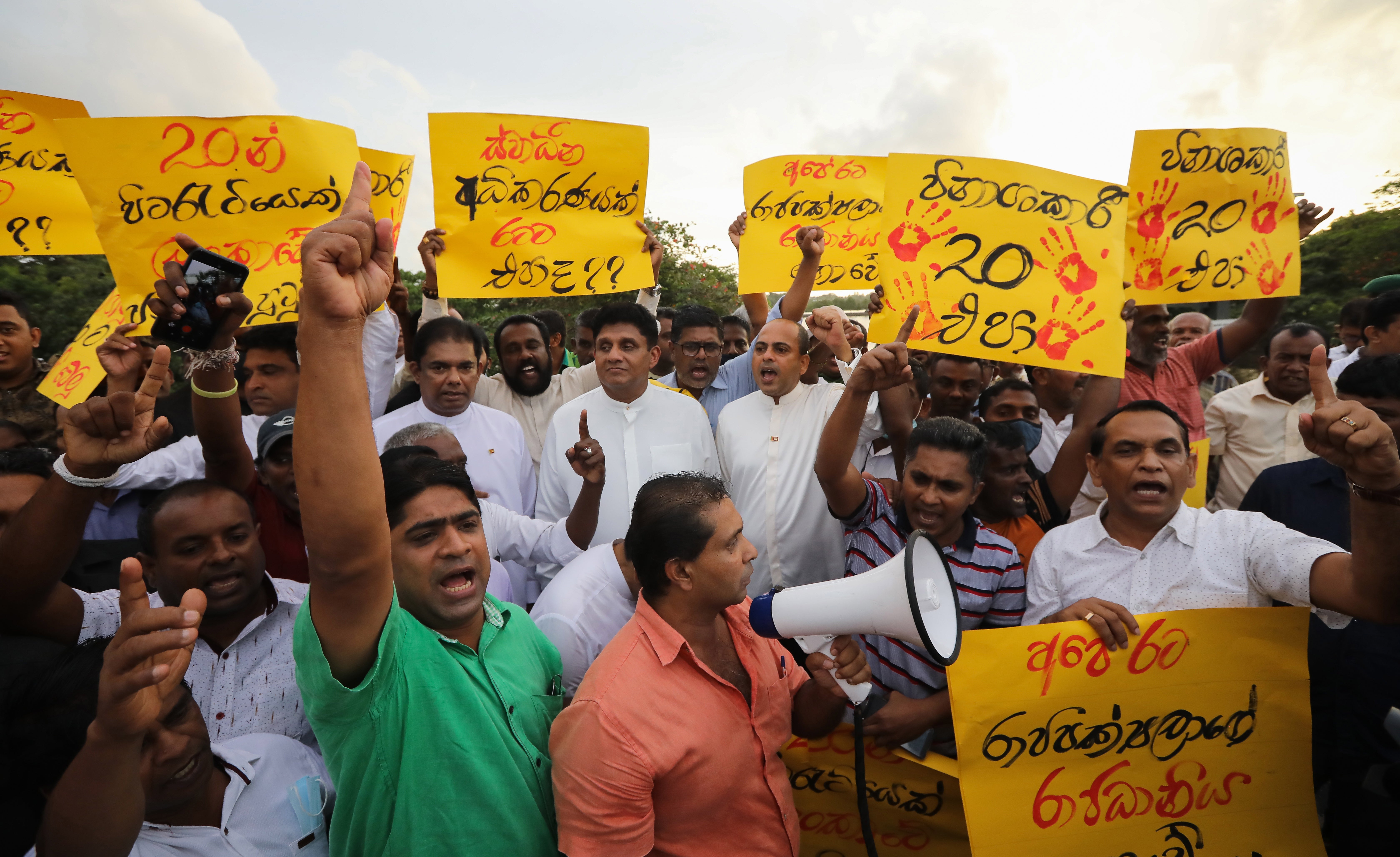A pandemic of repression: Governments using coronavirus to crush freedoms
Freedom House found democracy has suffered a set-back in 80 countries, including the United States and France

Your support helps us to tell the story
From reproductive rights to climate change to Big Tech, The Independent is on the ground when the story is developing. Whether it's investigating the financials of Elon Musk's pro-Trump PAC or producing our latest documentary, 'The A Word', which shines a light on the American women fighting for reproductive rights, we know how important it is to parse out the facts from the messaging.
At such a critical moment in US history, we need reporters on the ground. Your donation allows us to keep sending journalists to speak to both sides of the story.
The Independent is trusted by Americans across the entire political spectrum. And unlike many other quality news outlets, we choose not to lock Americans out of our reporting and analysis with paywalls. We believe quality journalism should be available to everyone, paid for by those who can afford it.
Your support makes all the difference.Before the coronavirus pandemic struck, the island nation of Sri Lanka was typical of the world’s struggling democracies. The government of prime minister Mahinda Rajapaksa challenged the country’s relatively lively political scene and media amid allegations of corruption that dogged nepotism, despite pushback from the opposition and the press.
But the pandemic gave the Rajapaksa government just the excuse it needed to push its agenda. Over the course of 2020, it has increased its attempts to stymie independent journalism and to silence those who have criticised its handling of the coronavirus pandemic. Elections were postponed, triggering a constitutional crisis that strengthened executive power. Authorities targeted religious minorities under the guise of enforcing health rules.
“Muslims were treated as superspreaders with some members of [the] government blaming Muslims for people not being able to celebrate religious holidays”, said a source speaking to researchers of a new report by the group Freedom House.
Sri Lanka is not alone. According to the new report, “Democracy under Lockdown”, dozens of governments around the world have used coronavirus fears to roll back civil liberties and press freedoms, triggering a global pandemic in alleged human rights abuses. The Washington-based organisation’s worldwide study identified 80 countries – including the United States and France – where democracy has suffered a blow during the pandemic.
“Governments have responded by engaging in abuses of power, silencing their critics, and weakening or shuttering important institutions, often undermining the very systems of accountability needed to protect public health,” says the 20-page report.
“The problem is particularly acute in struggling democracies and highly repressive states – in other words, settings that already had weak safeguards against abuse of power are suffering the most,” says the report, which is based on interviews with dozens of experts across the world.
Among the abuses cited are restrictions on media, disruptions to democratic elections and legislative sessions, bans on protest gatherings, arrests of dissidents and opposition voices, and violence by law enforcement. The countries where democracy has slid back include democracies such as India and Poland, partly free nations such as Bolivia and the Philippines, and authoritarian states such as Russia, Turkey and Venezuela, where governments are giving themselves special powers that go beyond health measures.
“Coronavirus was used as an excuse for the already oppressive government to do things that it has long planned to do, but had not been able to,” says a respondent in Turkey.
The examples of abuse were widespread and frightening. In the Philippines authorities have raided homes of people on the pretext that they had been exposed to the virus. In Sri Lanka, police accompanied by military intelligence officers go to “house-to-house” on the grounds of collecting health data.
In Kazakhstan, authorities are prosecuting activists and opposition figures critical of the government’s handling of the pandemic. In Cambodia, Azerbaijan, Serbia, and Guatemala governments have used Covid-19 to widen long-standing crackdowns on opponents.
In many countries, lockdown measures appear to unfairly target already marginalised communities. In Bulgaria, the Romany districts are placed under harsh restrictions. In Kuwait, the bulk of the pressure is on migrant labourers. In the UK, police are targeting Black and Asian at higher rates than white residents.
Nervous governments worried about how they’re being perceived at handling the pandemic have also targeted the media. According to the report, at least 91 of 192 countries reported restrictions on news media, with news outlets being pressured into censorship and individual journalists subjected to violence and harassment.
Healthcare measures intended to control the spread of the pandemic do not have to curtail freedoms. The report cites two struggling democracies that have been widely commended for taking healthcare measures without abusing the freedoms: Tunisia and Georgia. “These cases are a reminder that any country can take steps to manage health risks while respecting human rights,” says the report.

Join our commenting forum
Join thought-provoking conversations, follow other Independent readers and see their replies
Comments